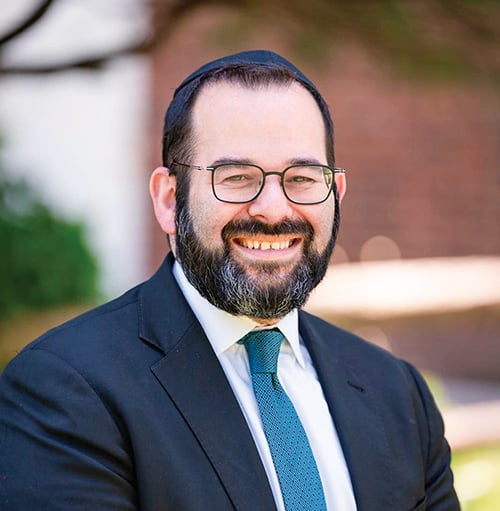
Many recent newspaper articles, blogs and social media posts have been critical of the continuing prohibition of kitniyot among Ashkenazic Jews on Pesach. The kitniyot prohibition bans several dozen foods even though they are not chametz in any way, shape or form. The reason these items are not considered chametz is that they are simply unable to leaven. Critics point out that the prohibition is antiquated, impractical and excessive. And that it was never instituted in Sephardic Jewish communities. This is not that kind of article.
Which Foods Are Kitniyot?
Over the centuries various foods were added to the list of kitniyot. The main items on the list are rice, corn, maize (North American corn), buckwheat/kasha, millet, beans, lentils, peas, sesame seeds, mustard and legumes, as well as peanuts, canola oil, chickpeas, coriander, fenugreek, string beans and sunflower seeds. If these foods can’t become chametz what’s the problem?
Confusion Leads to Sin
There are several reasons for prohibiting these items but the main one is based on a concern that if they were permitted on Pesach confusion might result. And confusion leads to sin. The sin of eating chametz on Pesach is so grave it incurs the penalty of kareit, an extremely severe punishment. That warrants the creation of fences to guarantee that nobody gets confused and nobody commits this great sin. Let’s examine one example of how this confusion might play out.
The Confusion of Cornbread
Let’s say Reuven bakes cornbread on Pesach. Cornbread resembles wheatbread. If Shimon observes Reuven eating the cornbread, he, Shimon, might become confused and conclude either:
- Reuven is eating wheatbread, which is chometz. He is therefore committing a grave sin.
or
- Reuven is eating wheatbread, and since Reuven is an observant Jew, wheatbread must be permissible on Pesach and Shimon might therefore follow Reuven’s lead and eat wheatbread on Pesach, a grave sin.
To avoid these possible points of confusion, and the potential for Shimon committing a very grave sin, the Sages (Chazal) banned corn and all corn products under the prohibition of kitniyot. Let’s now apply this confusion template to a recent food that has been developed to be kosher for Pesach, and is, without question, not chometz: bagels. Kosher-for-Pesach bagels are made from matzah meal under the supervision of widely respected kashrut organizations. They really look like regular bagels. So if Shimon observes Reuven eating a kosher-for-Pesach bagel, he, Shimon, might become confused and conclude either:
- Reuven is eating a bagel, which is chometz. He is therefore committing a grave sin.
or
- Reuven is eating a bagel, and since Reuven is an observant Jew, bagels must be permissible on Pesach and Shimon might therefore follow Reuven’s lead and eat bagels on Pesach, a grave sin.
The Hypocrisy of Kitniyot
Time out. Didn’t we just say that cornbread, although undoubtedly not chometz, is prohibited because of kitniyot, based on the principle of potential confusion? If so, why are kosher-for-Pesach bagels permitted? Shouldn’t they also be prohibited due to the confusion principle? Wouldn’t Chazal have been extremely concerned about the possibility of confusion and resulting sin? Isn’t this hypocrisy, which is defined as behavior that contradicts what one claims to believe? We claim to believe that confusion that could lead to the sin of eating chametz on Pesach must be prevented, but we then turn around and behave in a totally contradictory way. Kosher consumers buy and eat foods that not only might be confused with chometz, but are intentionally designed to be indistinguishable from chometz! Cornbread just happens to resemble wheatbread, but kosher-for-Pesach bagels were created for the sole purpose of substituting for chametz bagels.
More than Bagels
But it’s not just bagels. The list of kosher-for-Pesach foods made to be indistinguishable from actual chametz foods grows every year. In 2019 the following foods, and many more, may be eaten on Pesach:
- Rolls
- Challah
- Pasta—spaghetti, ziti, lasagna, fettuccine etc.
- Breakfast cereals
- Pizza
- Pancakes
As authentic as the production of faux-chametz is today, it is only bound to get better over time and thereby make foods even more indistinguishable from actual chometz. A faux bagel that looks almost exactly like a real bagel in 2019 might be improved to look exactly like a real bagel by 2020. And that will increase the likelihood of confusion and sin.
If we are to be consistent, if we truly want to avoid confusion, if we want to not be hypocritical, I believe all of the above products should be prohibited on Pesach. The intent of this article is not to cause financial loss to any kosher food companies, or to criticize the kashrut organizations for approving such products. Its purpose is to make us think about the special character of the chag of Pesach and to encourage us to remain true to the time-honored principles established by Chazal and to the spirit of their law.
The Bigger Point
But there’s a bigger point to all this. I believe one of the sub-themes of Pesach is that we are a spiritual people. Spirituality, ruchniyut, is the inverse of gashmiyut, physicality. As one increases, the other decreases. I believe there is a certain element of holiness to physical deprivation. While some see being deprived of real bagels, pizza and pasta as gashmiyut deprivation, I see it as ruchniyut elevation. Some people seem to think they can’t go eight days without bagels, pasta and pizza. I think they can.
Growing up, some of my favorite Pesach foods were chemzel, matzah brei, macaroons, matzah and butter sandwiches, honey cake, filbert nuts and walnuts. Foods that I ate only during the eight days of Pesach. For me, those foods made Pesach Pesach.
During the holy week of Pesach why would I choose faux pancakes over chemzel?
Why would I choose faux pizza over matzah brei?
Why would I choose a faux bagel over a matzah and butter sandwich?
Why would anyone choose to make the holy week of Pesach indistinguishable from the other weeks of the year?
By Ira Buckman
Ira Buckman lives in Teaneck.













